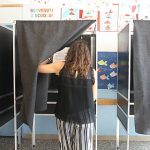
Inflation has slowed to a two-year low of 4.6 per cent on the back of falling energy prices that will all but ensure that Rishi Sunak meets his pledge to halve price growth by the end of the year.
In January the government said it wanted to halve inflation, implying an end-of-year target of 5.3 per cent, which is likely to be met in December.
The prime minister said: “In January I made halving inflation this year my top priority. I did that because it is, without a doubt, the best way to ease the cost of living and give families financial security. Today, we have delivered on that pledge.”
Jeremy Hunt, the chancellor, said: “We are beginning to win the battle against inflation.”
Analysts at Capital Economics said Sunak played a limited role in the fall in inflation, noting that almost all of the decline since January is due to the easing in utilities, fuel and food inflation that is mostly driven by global influences which, along with the Bank of England’s interest rate hikes, have also eased core inflation.
“So the prime minister hasn’t really played much of a role,” it said.
Official figures from the Office for National Statistics said that annual consumer price inflation grew by 4.6 per cent last month compared with October 2022, lower than economists’ expectations of 4.8 per cent and a sizeable drop from the 6.7 per cent recorded in September.
A measure of core inflation, which strips out energy and food prices, slipped to 5.7 per cent last month from 6.1 per cent the previous month.
The UK’s benchmark stock market indexes rose on Wednesday for the third day in a row after the better-than-expected inflation figures lifted sentiment. The FTSE 100 was up 0.9 per cent this morning and the mid-cap FTSE 250 gained 0.4 per cent.
The steep fall in headline inflation, which is the largest monthly drop since 1992, was widely expected because last month’s price calculation compares favourably with the 11.1 per cent peak in CPI reached in October 2022, when soaring global gas prices pushed up household energy bills. Double-digit inflation forced the government to introduce an energy price cap that limits the amount energy companies can charge on their default tariff.
The ONS said slowing inflation in October was also driven by a large decrease in costs for housing and household services, where price growth was the lowest since records began in 1950 at 1.9 per cent. Food price inflation also pushed down the headline inflation figure, declining to a 15-month low of 10.1 per cent. This has fallen steadily from a peak of nearly 20 per cent earlier this year.
Grant Fitzner, chief economist of the ONS, said: “Inflation fell substantially on the month as last year’s steep rise in energy costs has been followed by a small reduction in the energy price cap this year.”
“Food prices were little changed on the month, after rising this time last year, while hotel prices fell, both helping to push inflation to its lowest rate for two years.”
Headline inflation has now fallen for seven consecutive months and will raise hopes that restrictive interest rates are having an impact on the labour market and slowing consumer spending demand. Figures released yesterday showed a slight ease in wage pressures, from 7.8 per cent to 7.7 per cent in the three months to September, a figure that the Bank has said is far too high for it to meet its 2 per cent inflation target.
The annual retail prices index inflation rate was 6.1 per cent last month. This measures the cost of living by tracking the price of a “basket of goods” and though it is no longer an official measure it continues to be widely used to set contracts.
UK inflation has been consistently above other G7 economies but is now beginning to fall back in line with peers. Latest estimates show the equivalent headline inflation in the US fell back to about 3 per cent in October and is averaging at 2.9 per cent in the eurozone.
The figures should allow the Bank of England to keep interest rates on hold again next month, after two consecutive meetings in which it has maintained the base rate at 5.25 per cent. The monetary policy committee (MPC) has said it will only raise interest rates again if faced with evidence showing inflation is proving to be more stubborn than expected.
Yael Selfin, chief economist at KPMG, warned that the sharp fall in inflation masked challenges ahead: “Today’s data reflect the fall in the energy price cap, which is down significantly compared to a year ago. Despite the sharp fall in energy prices, underlying indicators of inflationary pressure such as services prices continue to show persistence.
“With headline inflation remaining significantly above target, today’s data are unlikely to shift the dial for the Bank of England, with interest rates expected to remain at their current level until the second half of next year.”
A closely watched measure of services inflation, which is used by the Bank to judge the state of wage pressures, dropped to 6.6 per cent, above the 6.9 per cent expected by the MPC.
Read more:
UK inflation falls to two-year low of 4.6%




